
To Kill a Mockingbird 梅岡城故事 by Harper Lee
In 1991 we went back to Taiwan and pretty much never went back to the States (because plane tickets were expensive) until 8 years later for a visit, and again 4 years after that.
But we did move three times, something we'd never done before in Taiwan. The previous 2 stints in Taiwan, we had lived in south Kaohsiung near the airport in tiny apartments. This time we started out in north Kaohsiung in a gated courtyard of townhouses.
My dad still took us into town every week or so and we would do our homework in a coffee shop run by an old friend.


I cried over C. S. Lewis's Till We Have Faces at that table.
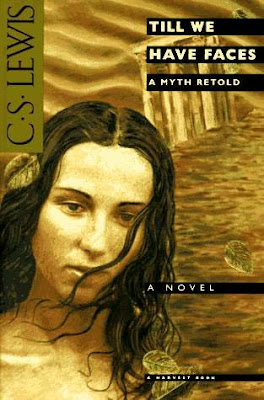
Later, when I was going into the city every week or so to get my teeth fixed by a benevolent orthodontist (who only charged us materials), I first spent a couple of hours at an old German Cultural Center some blocks away.

They had racks of musty old English books on the first floor where I read Marmion, some novels that shall remain nameless about American mafia, and the true account The Little Princesses by Marion Crawford, Queen Elizabeth II 's governess, which fascinated me like stumbling into a forgotten pocket of history.
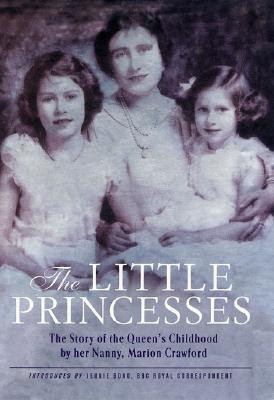
It's a lucky thing I've never run into Queen Elizabeth because my first words to her would have been how I had read her governess's book about her childhood. It was only while looking up the book for this article that I discovered the royal family never spoke to the governess again after she gave permission for it to be published.
But the German Cultural Center had eerily fascinating books. One was about bums in New York, with a chapter on each bum telling how he/she survived. They gave me that book, but I didn't feel right in asking for any more, and when I went back after months of absence to discover that all the books had been carted off to the city garbage dump, it made me feel sick for years.
On my 15th birthday my dad gave me a stack of Conservative Book Club envelopes and said I could order $200 worth of books for my very own. I almost died with excitement.
I think it took me a year or so to get the books. At any rate I pored over my choices for months and I actually ended up with more credit to order books with by the time I finally ordered. Then we had to wait two months for the books to arrive by surface mail, and when three more months went by we started to worry about them. It turned out they had been sent to the wrong address, a Catholic organization in Taiwan, who had stamped about half the books with their address before they discovered the mix-up and took them back to the post office.

One of my favorite, favorite books from this time is Psychological Seduction: The Failure of Modern Psychology by William Kirk Kilpatrick.
What is so exciting about psychology, you ask? Because somehow he mentioned all my most-loved books and it was this book I read to my dad to explain why I loved the books I did.
If you want to get a taste of Kirkpatrick's writing, click here "Why Secular Psychology Is Not Enough" (article starts after four paragraphs of intro).

Ralph Moody's Little Britches autobiography set is iconic American history even more exciting than Little House on the Prairie. I had loved his first book growing up, but it was only at this point I was able to order the rest of the series and read most of them to my family. Following are the individual books with quotes from the book jackets.
 Ralph Moody was eight years old in 1906 when his family moved to a Colorado ranch. Through his eyes we experience the pleasures and perils of ranching there at the dawn of the century. Auctions and roundups, family picnics, irrigation wars, tornadoes, and windstorms provide authentic color. So do adventures, wonderfully told, that prepare Ralph to take his father's place.
Ralph Moody was eight years old in 1906 when his family moved to a Colorado ranch. Through his eyes we experience the pleasures and perils of ranching there at the dawn of the century. Auctions and roundups, family picnics, irrigation wars, tornadoes, and windstorms provide authentic color. So do adventures, wonderfully told, that prepare Ralph to take his father's place. Fortified with Yankee ingenuity and western can-do energy, the Moody family, transplanted from New England, builds a new life on a Colorado ranch early in the 20th century. Father has died and Little Britches shoulders the responsibilities of a man at age eleven.
Fortified with Yankee ingenuity and western can-do energy, the Moody family, transplanted from New England, builds a new life on a Colorado ranch early in the 20th century. Father has died and Little Britches shoulders the responsibilities of a man at age eleven. "Little Britches becomes the "man" in his family after his father's early death, taking on the concomitant responsibilities as well as opportunities. During the summer of his twelfth year he works on a cattle ranch in the shadow of Pike's Peak, earning a dollar a day. Little Britches is tested against seasoned cowboys on the range and in the corral. He drives cattle through a dust storm, eats his weight in flapjacks, and falls in love with a blue outlaw horse. Following Little Britches and developing an episode noted near the end of Man of the Family, The Home Ranch continues the adventures of young Ralph Moody. Soon after returning from the ranch, he and his mother and siblings will go east for a new start, described in Mary Emma & Company and The Fields of Home."
"Little Britches becomes the "man" in his family after his father's early death, taking on the concomitant responsibilities as well as opportunities. During the summer of his twelfth year he works on a cattle ranch in the shadow of Pike's Peak, earning a dollar a day. Little Britches is tested against seasoned cowboys on the range and in the corral. He drives cattle through a dust storm, eats his weight in flapjacks, and falls in love with a blue outlaw horse. Following Little Britches and developing an episode noted near the end of Man of the Family, The Home Ranch continues the adventures of young Ralph Moody. Soon after returning from the ranch, he and his mother and siblings will go east for a new start, described in Mary Emma & Company and The Fields of Home." "The protagonist, Mary Emma Moody, widowed mother of six, has taken her family east in 1912 to begin a new life. Her son, Ralph, then thirteen, recalls how the Moodys survive that first bleak winter in a Massachusetts town. Money and prospects are lacking, but not so faith and resourcefulness. 'Mother' in Little Britches and Man of the Family, Mary Emma emerges fully as a character in this book, and Ralph, no longer called 'Little Britches', comes into his own.The family's run-ins with authority and with broken furnaces in winter are evocative of a full and warm family life."
"The protagonist, Mary Emma Moody, widowed mother of six, has taken her family east in 1912 to begin a new life. Her son, Ralph, then thirteen, recalls how the Moodys survive that first bleak winter in a Massachusetts town. Money and prospects are lacking, but not so faith and resourcefulness. 'Mother' in Little Britches and Man of the Family, Mary Emma emerges fully as a character in this book, and Ralph, no longer called 'Little Britches', comes into his own.The family's run-ins with authority and with broken furnaces in winter are evocative of a full and warm family life." "The fatherless Moody family moves from Colorado to Massachusetts in 1912, when Ralph enters his teens. There, he discovers that 'just little things that would have been all right in Colorado' now get him into trouble. He is sent to his grandfather's farm in Maine, where he finds adventures every bit as colorful as those described in Little Britches and Man of the Family."
"The fatherless Moody family moves from Colorado to Massachusetts in 1912, when Ralph enters his teens. There, he discovers that 'just little things that would have been all right in Colorado' now get him into trouble. He is sent to his grandfather's farm in Maine, where he finds adventures every bit as colorful as those described in Little Britches and Man of the Family." "Skinny and suffering from diabetes, Ralph Moody is ordered by a Boston doctor to seek a more healthful climate. Going west again is a delightful prospect. His childhood adventures on a Colorado ranch were described in Little Britches and Man of the Family, also Bison Books. Now nineteen years old, he strikes out into new territory, hustling odd jobs, facing the problem of getting fresh milk and leafy green vegetables. He scrapes around to survive, risking his neck as a stunt rider for a movie company. With an improvident buddy named Lonnie, he camps out in an Arizona canyon and 'shakes the nickel bush' by sculpting plaster of paris busts of lawyers and bankers. This is 1918, and the young men travel through the Southwest not on horses but in a Ford aptly named Shiftless."
"Skinny and suffering from diabetes, Ralph Moody is ordered by a Boston doctor to seek a more healthful climate. Going west again is a delightful prospect. His childhood adventures on a Colorado ranch were described in Little Britches and Man of the Family, also Bison Books. Now nineteen years old, he strikes out into new territory, hustling odd jobs, facing the problem of getting fresh milk and leafy green vegetables. He scrapes around to survive, risking his neck as a stunt rider for a movie company. With an improvident buddy named Lonnie, he camps out in an Arizona canyon and 'shakes the nickel bush' by sculpting plaster of paris busts of lawyers and bankers. This is 1918, and the young men travel through the Southwest not on horses but in a Ford aptly named Shiftless." "Ralph Moody, just turned twenty, had only a dime in his pocket when he was put off a freight in western Nebraska. It was the Fourth of July in 1919. Three months later he owned eight teams of horses and rigs to go with them. Everyone who worked with him shared in the prosperity - the widow whose wheat crop was saved and the group of misfits who formed a first-rate harvesting crew. But sometimes fickle Mother Nature and frail human nature made sure that nothing was easy. The tension between opposing forces never lets up in this book. Without preaching, The Dry Divide warmly illustrates the old-time virtues of hard work, ingenuity, and respect for others. The Ralph Moody who was a youngster in Little Britches and who grew up without a father and with early responsibilities in Man of the Family, The Fields of Home, The Home Ranch, Mary Emma & Company, and Shaking the Nickel Bush (all Bison Books) has become a man to reckon with in The Dry Divide."
"Ralph Moody, just turned twenty, had only a dime in his pocket when he was put off a freight in western Nebraska. It was the Fourth of July in 1919. Three months later he owned eight teams of horses and rigs to go with them. Everyone who worked with him shared in the prosperity - the widow whose wheat crop was saved and the group of misfits who formed a first-rate harvesting crew. But sometimes fickle Mother Nature and frail human nature made sure that nothing was easy. The tension between opposing forces never lets up in this book. Without preaching, The Dry Divide warmly illustrates the old-time virtues of hard work, ingenuity, and respect for others. The Ralph Moody who was a youngster in Little Britches and who grew up without a father and with early responsibilities in Man of the Family, The Fields of Home, The Home Ranch, Mary Emma & Company, and Shaking the Nickel Bush (all Bison Books) has become a man to reckon with in The Dry Divide." "'Ralph Moody's story is a perfect example of rural American enterprise in the early 1920s. He found himself with mountainous debts through collapse of the livestock market. In the process of digging himself out of debt, he also saved a town from total bankruptcy. The reader lives through a flash flood, admires his sanitary slaughter house, and weeps over a forced farm auction. This book is a glorious recollection of Pre-Dust Bowl, pre-Depression days and is highly recommended. - Library Journal
"'Ralph Moody's story is a perfect example of rural American enterprise in the early 1920s. He found himself with mountainous debts through collapse of the livestock market. In the process of digging himself out of debt, he also saved a town from total bankruptcy. The reader lives through a flash flood, admires his sanitary slaughter house, and weeps over a forced farm auction. This book is a glorious recollection of Pre-Dust Bowl, pre-Depression days and is highly recommended. - Library Journal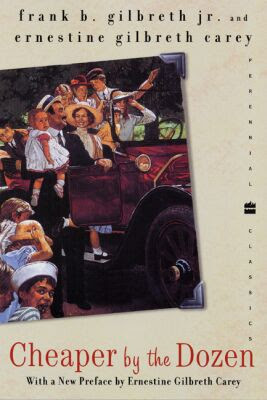
Cheaper By the Dozen, the true story of Frank and Lillian Gilbreth, efficiency experts, and their 12 kids, written by two of their kids. (my favorite funny excerpt)
One teacher in the Sunday school, a Mrs. Bruce, had the next to largest family in Montclair. She had eight children, most of whom were older than we. Her husband was very successful in business, and they lived in a large house, about two miles from us. Mother and Mrs. Bruce became great friends.
About a year later, a New York woman connected with some sort of national birth control organization came to Montclair to form a local chapter. Her name was Mrs. Alice Mebane, or something like that. She inquired among her acquaintances as to who in Montclair might be sympathetic to the birth control movement. As a joke, someone referred her to Mrs. Bruce.
"I'd be delighted to cooperate," Mother's friend told Mrs. Mebane, "But you see I have several children myself."
"Oh I had no idea," said Mrs. Mebane, "How many?"
"Several," Mrs. Bruce replied vaguely. "So I don't think I would be the one to head up any birth control movement in Montclair."
"I must say, I'm forced to agree. We should know where we're going, and practice what we preach."
"But I do know just the person for you," Mrs. Bruce continued. "And she has a big house that would be simply ideal for holding meetings."
"Just what we want," purred Mrs. Mebane. "What is her name?"
"Mrs. Frank Gilbreth. She's civic minded, and she's a career woman."
"Exactly what we want. Civic minded, career woman, and - most important of all - a large house. One other thing - I suppose it's too much to hope for - but is she by any chance an organizer? You know, one who can take things over and militantly drive ahead?"
"The description," gloated Mrs. Bruce, "fits her like a glove."
"It's almost too good to be true," said Mrs. Mebane, wringing her hands in ecstacy. "May I use your name and tell Mrs. Gilbreth you sent me?"
"By all means," said Mother's friend. "Please do. I shall be disappointed, if you don't."
"And don't think that I disapprove of your having children," laughed Mrs. Mebane. "After all, many people do, you know."
"Careless of them," remarked Mrs. Bruce.
The afternoon that Mrs. Mebane arrived at our house, all of us children were, as usual, either upstairs in our rooms or playing in the back yard. Mrs. Mebane introduced herself to Mother.
"It's about birth control," she told Mother.
"What about it?" Mother asked, blushing.
"I was told you'd be interested."
"Me?"
"I've just talked to your friend, Mrs. Bruce, and she was certainly interested."
"Isn't it a little late for her to be interested?" Mother asked.
"I see what you mean, Mrs. Gilbreth. But better late than never, don't you think?"
"But she has eight children," said Mother.
Mrs. Mebane blanched, and clutched her head.
"[]," she said. "Not really."
Mother nodded.
"How perfectly frightful. She impressed me as quite normal. Not at all like an eight-child woman."
"She's kept her youth well," Mother conceded.
"Ah, there's work to be done, all right," Mrs. Mebane said. "Think of it, living right here within eighteen miles of our national birth control headquarters in New York City, and her having eight children. Yes, there's work to be done, Mrs. Gilbreth, and that's why I'm here."
"What sort of work?"
"We'd like you to be the moving spirit behind a Montclair birth control chapter."
Mother decided at this point that the situation was too ludicrous for Dad to miss, and that he'd never forgive her if she didn't deal him in.
"I'll have to ask my husband," she said. "Excuse me while I call him."
Mother stepped out and found Dad. She gave him a brief explanation and then led him into the parlor and introduced him.
"It's a pleasure to meet a woman in such a noble cause," said Dad.
"Thank you. And it's a pleasure to find a man who thinks of it as noble. In general, I find the husbands much less sympathetic with our aims than the wives. You'd be surprised at some of the terrible things men have said to me."
"I love surprises," Dad leered. "What do you say back to them?"
"If you had seen, as I have," said Mrs. Mebane, "relatively young women grown old before their time by the arrival of unwanted young ones. And population figures show ... Why, Mr. Gilbreth, what are you doing?"
What Dad was doing was whistling assembly. On the first note, feet could be heard pounding on the floors above. Doors slammed, there was a land slide on the stairs, and we started skidding into the parlor.
"Nine seconds," said Dad pocketing his stopwatch. "Three short of the all-time record."
"[]" said Mrs. Mebane. "What is it? Tell me quickly. It is a school? No. Or is it ...? [] It is!"
"It is what?" asked Dad.
"It's your family. Don't try to deny it. They're the spit and image of you, and your wife, too."
"I was about to introduce you," said Dad. "Mrs. Mebane, let me introduce you to the family - or most of it. Seems to me like there should be some more of them around here someplace."
"God help us all."
"How many head of children do we have now, Lillie, would you say off hand?"
"Last time I counted, seems to me there was an even dozen of them," said Mother. "I might have missed one or two of them, but not many."
"I'd say twelve would be a pretty fair guess," Dad said.
"Shame on you! And within eighteen miles of national headquarters."
"Let's have tea," said Mother.
But Mrs. Mebane was putting on her coat. "You poor dear," she clucked to Mother. "You poor child." Then turning to Dad. "It seems to me that the people of this town have pulled my leg on two different occasions today."
"How revolting," said Dad. "And within eighteen miles of national headquarters, too."
I've always wanted 24 kids because I wanted double the fun of Cheaper By the Dozen (and other books like it), and because my mom's family had 9 and I didn't come across another more lively fun-loving family until 15 years later. My heart would start beating unbearably fast as we got within the last few miles of Gramma's house. I can be forgiven for thinking BIG FAMILIES = TONS OF FUN. Read more ... (link to another post)
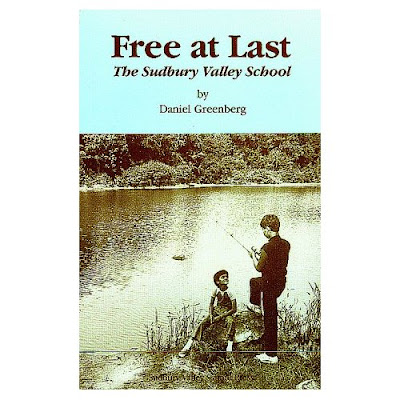
Free At Last by Daniel Greenberg, is about Sudbury Valley, a real school where the students can do whatever they want, figure out what they want to study all on their own, and most of the time teach themselves:
It starts with someone, or several persons, who decide they want to learn something specific -- say, algebra, or French, or physics, or spelling, or pottery. A lot of times, they figure out how to do it on their own. They find a book, or a computer program, or they watch someone else. When that happens, it isn't a class. It's just plain learning....But when they do use classes, they go find a teacher to make an appointment with. Their students often learn six years of math in 20 weeks. Most of their students teach themselves to read without help:
Most of the time, kids at school figure out what they want to learn and how to learn it all on their own. They don't use classes all that much.
-- excerpted from Free At Last by Daniel Greenberg
In fact, no one at school bothers much about reading. Only a few kids seek any help at all when they decide to learn. Each child seems to have their own method. Some learn from being read to, memorizing the stories and then ultimately reading them. Some learn from cereal boxes, others from game instructions, others from street signs. Some teach themselves letter sounds, others syllables, others whole words. To be honest about it, we rarely know how they do it, and they rarely can tell us. One day I asked a child who had just become a reader, "How did you learn to read?" His answer: "It was easy. I learned 'in.' I leaned 'out.' And then I knew how to read."
- excerpted from Free At Last by Daniel Greenberg
Read my post Homeschooling, A Free Luxury Education for a mention and photos of how this happened with my little sister who has Down's Syndrome.
I guess it's worth repeating. At Sudbury Valley, not one child has ever been forced, pushed, urged, cajoled, or bribed into learning how to read. We have had no dyslexia. None of our graduates are real or functional illiterates. Some eight year olds are, some ten year olds are, even an occasional twelve year old. But by the time they leave, they are indistinguishable. No one who meets our older students could ever guess the age at which they first learned to read or write.
- excerpted from Chapter 5 in Free At Last by Daniel Greenberg
outside link: more schools like Sudbury Valley

G. K. Chesterton said in his book Brave New Family:
But the main point is that the world outside the home is now under a rigid discipline and routine and it is only inside the home that there is really a place for individuality and liberty. Anyone stepping out of the front-door is obliged to step into a procession, all going the same way and to a great extent even obliged to wear the same uniform. Business, especially big business, is now organized like an army... But anyhow, it is obvious that a hundred clerks in a bank or a hundred waitresses in a teashop are more regimented and under rule than the same individuals when each has gone back to his or her own dwelling or lodging ...
-- The Drift From Domesticity, Brave New Family, G. K. Chesterton
If drudgery only means dreadfully hard work, I admit the woman drudges in the home, as a man might drudge at the Cathedral of Amiens or drudge behind a gun at Trafalgar. But if it means that the hard work is more heavy because it is trifling, colourless and of small import to the soul, then, as I say, I give it up; I do not know what the words mean. To be Queen Elizabeth within a definite area, deciding sales, banquets, labours and holidays; to be Whiteley within a certain area, providing toys, boots, sheets, cakes and books; to be Aristotle within certain area, teaching morals, manners, theology, and hygiene; I can understand how this might exhaust the mind, but I cannot imagine how it could narrow it. How can it be a large career to tell other people's children about the Rule of Three, and a small career to tell one's own children about the universe? How can it be broad to be the same thing to everyone, and narrow to be everything to someone? No; a woman's function is laborious, but because it is gigantic, not because it is minute. I will pity Mrs. Jones for the hugeness of her task; I will never pity her for its smallness.
-- The Emancipation of Domesticity, Brave New Family, G. K. Chesterton
I doubt whether mothers could escape from motherhood into Socialism. But the advocates of Birth Control seem to want some of them to escape from it into capitalism. They seem to express a sympathy with those who prefer "the right to earn outside the home" or (in other words) the right to be a wage-slave and work under the orders of a total stranger because he happens to be a richer man. By what conceivable contortions of twisted thought this ever came to be considered a freer condition than that of companionship with the man she has herself freely accepted, I never could for the life of me make out.... I can easily believe that there are some people who do prefer working in a factory to working in a family; for there are always some people who prefer slavery to freedom, and who especially prefer being governed to governing someone else. But I think their quarrel with motherhood is not like mine, a quarrel with inhuman conditions, but simply a quarrel with life. Given an attempt to escape from the nature of things, and I can well believe that it might lead at last to something like the "nursery school for our children staffed by other mothers and single women of expert training."
I will add nothing to that ghastly picture, beyond speculating pleasantly about the world in which women cannot manage their own children but can manage each other's. But I think it indicates an abyss between natural and unnatural arrangements ...
-- Social Reform Versus Birth Control, G. K. Chesterton
The actual effect of this theory is that one harassed person has to look after a hundred children, instead of one normal person looking after a normal number of them. Normally that normal person is urged by a natural force, which costs nothing and does not require a salary; the force of natural affection for his young, which exists even among the animals. If you cut off that natural force, and substitute a paid bureaucracy, you are like a fool who should pay men to turn the wheel of his mill, because he refused to use wind or water which he could get for nothing. You are like a lunatic who should carefully water his garden with a watering-can, while holding up an umbrella to keep off the rain.
-- The Drift from Domesticity, Brave New Family, G. K. Chesterton
Other books I read around this time:


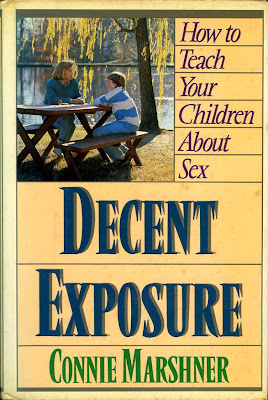
Here's the dust jacket blurb:
"You don't know how to have any fun."Can Motherhood Survive? is also by Connie Marshner:
"Yes I do; I've had a delightful evening. Let's leave it that way, shall we?"
You don't understand. Guys have to have sex."
"Nonsense. Nobody ever died of abstinence before, and you won't be the first."
"I love you so much I want to give you something more."
"OK, so give me your self-control, and let me keep what I cherish, control over my own body."
"Don't you love me?"
"Well, frankly, if you're that kind of person, not at all."
"Everybody does it, you know."
"I'm not everybody."
"I'll bet you're just scared."
"Of venereal disease, yes. Of illegitimate pregnancy, you bet."
"But I'll take care of you."
"Thanks, but I can take care of myself for now."
"It's only natural."
"So is death, but I don't want to practice that either."
From Chapter 11 - Modesty, Peers and Dating

Grand Illusions by the journalist George Grant, I read to my mom:
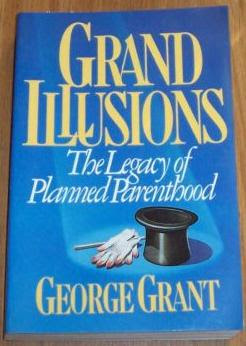
Story after story told by woman after woman in Aborted Women: Silent No More:

www.abortiontv.com has the same type of true stories that can be read here and here.
By the way, that site is banned in Australia. Here's how I found out about it. See also Banned Hyperlinks Could Cost You $11,000 a Day
It all started with being "for the children" to keep them from stumbling onto bad stuff on the internet and now half the banned sites on the blacklist have nothing to do with bad stuff but are purely political.
Taiwan used to routinely show an abortion film in schools to scare students away from promiscuity but they've stopped that now, saying it's too gruesome to show children. Let me see, it's too grusome to SHOW children but not too gruesome to DO to children? If you're going to do it, step up and own it.
These next two books I also read over and over:


I don't think the novel This Present Darkness by Frank E. Peretti is scriptural but it was heart-pounding. I read it to my mom.

Biographies that especially struck me:
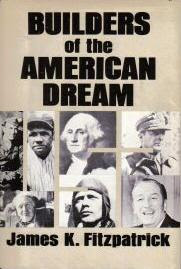
Builders of the American Dream by James K Fitzpatrick I read to my parents.

Wild Swans by Jung Chang - The true story of three generations of women in China. My mom read it to my Dad, or I would have.
Wild Swans is on a par of greatness with Fox Butterfield's Alive in the Bitter Sea. I finally got a clear picture of how people were taken in by the idealism of communism when it first started out, and the horror that it became because it wasn't founded on Biblical principles.
People were attracted to the idealism and integrity of the early adherents, but the system itself was not built to withstand the weaknesses of human nature or limit the power of government and power cultists.
Wild Swans 鴻: 三代中國女人的故事 doesn't read like a "history book", but paragraph after exciting paragraph through their mistaken lives. If I were rich, this is the book I'd give all my relatives about China (well ... and How to Get Along with the Chinese for Fun and Profit which is hilarious, and I read it to my dad).

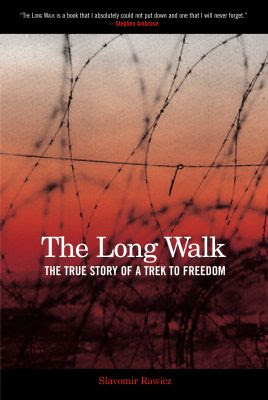
The Long Walk by Slavomir Rawicz:
The scene that sticks in my head is where the prisoners have been trucked out to Siberia, and they're marching in long lines of chained men behind the trucks through the snow. And how when he finally escaped and had to cross the Gobi desert and the Himalayas and everybody in the group died off one by one except him, he DIDN'T STOP GOING till he got to freedom. As the blurb will tell you, even when he made it to civilization and a hospital, he kept trying to leave the hospital.
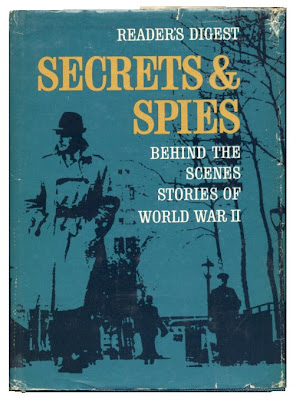
Secrets and Spies: Behind the Scenes Stories of World War 11. I read most of this book to my parents.
It's stories like Tunnel to Freedom (one of the stories in the book above), and the books Papillon and The Long Walk (mentioned above), stories of men with a seemingly undauntable will to escape, that made it so that ever afterward I could not understand hearing about runaway girls in American cities being forced to become hookers, even let out on the street to work for their pimps, and still they could not escape? It dumbfounded me.
Because the soldiers in Tunnel to Freedom and the men in Papillon and The Long Walk would have begged God for one, just one, of those girls' chances at escape.
And years later I read an article about gangs in some southwestern city where if somebody from a rival gang meets a girl on the street, she has to crouch down on the sidewalk with her head in her arms until her pimp comes to rescue her.
Well, it looks like at least half of your freedom is all in your head.
Do they have anything to escape for? Do they even have anything in their heads except their immediate surroundings? Oh, they've got plenty of "social interaction" all right.
If they had at least 500 books of human freedom and history in their heads, along with Sherlock Holmes, and Miss Marple, and the Middle Moffat, and Solzhenitsyn, and all the men who were in Tunnel to Freedom, The Long Walk, and Papillon, would it make it easier for them to escape?

Congo Kitabu - Jean Pierre Hallet
The true story of Jean Pierre Hallet who, among 19 other near-death experiences, drove five hours after his hand got bitten off by a crocodile and single-handedly saved the pygmies. This is also why Ferris Bueller is a Shrimp.
Read it to my parents (though this is a case where I didn't have the actual book but read it out of a Reader's Digest Condensed Book).


Genevieve Foster's The World of Columbus and Sons gave me goosebumps.
Did you know that Columbus, Ferdinand and Isabella, Leonardo Da Vinci, the Medicis, Gutenberg, Martin Luther, Henry the 8th and all his wives, Michelangelo, Raphael, Savonarola, Albrecht Durer, Erasmus, Copernicus, Machiavelli, Magellan, and Thomas More among many others, all lived in the same 100 hundred year period? And ooo, what a soap opera it was.
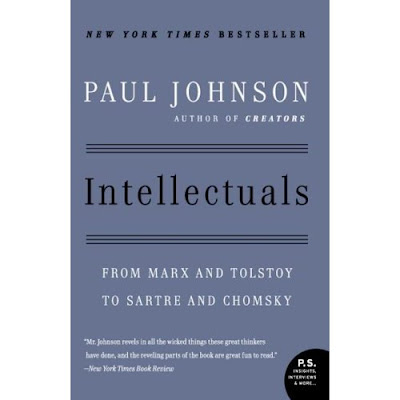
Paul Johnson's Intellectuals showing that intellectuals were mostly a rotten bunch who treated their nearest and dearest horribly. A partial review of the book here.

Dr. William Campbell Douglass's highly readable The Milk Book with funny footnotes on almost every page. We had it when it was titled The Milk of Human Kindness is Not Pasteurized. Read it to my parents.

Eat Your Cholesterol by William Campbell Douglass, with his signature funny footnotes. Read it to my parents, along with his Into the Light, and Hydrogen Peroxide Medical Miracle. We also read medical newsletter, Second Opinion, every month for years.
The First Move
After almost two years of us living in the courtyard of townhouses, our landlord wanted to sell, so we moved even farther north to the district of Nandz and lived with a Chinese family, on the top two floors of their townhouse in a then still undeveloped suburb near the Naval College. It was very hot in the summer, but we had a covered roof patio outside the tiny living room, with glorious sunsets every day. It felt like being set free to go from a gated courtyard community surrounded by city, to open streets and empty lots and a campus nearby. Unfortunately, the English fiction section of their library was pitiful.

Cranberry Thanksgiving by Wende and Harry Devlin
I loved this book in childhood, but I read it so many times to my baby sister around this time that I no longer remember when I first liked it, so am listing it here.
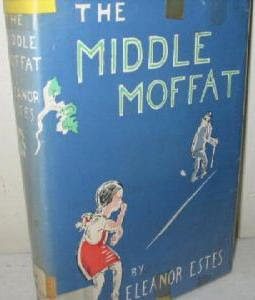
During this time I somehow discovered we had the endearingly funny The Middle Moffat in our house, which has since become a permanent favorite. I read it to my mom. It's evocative of a bygone era, the fringes of which lurked at the fringes of my memory as a 3 year old in Vermont.
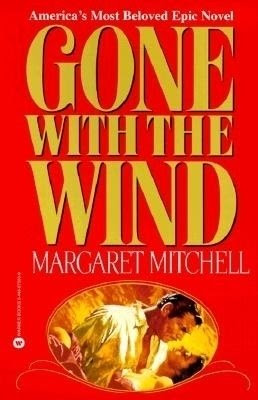
I got my first steady "job" that summer speaking English and listening to oldies with Sandra, the daughter of the boss of a family-owned metal factory back near our old house. She manned one of the front desks, right across the road from the school she attended, the famous language school Wen-Zao, with a huge English library where I read Ian Fleming again and checked out Gone with the Wind, to read everyday at lunch hour. (I had not known there was an extensive English library so close the two years we'd lived near it. The bus we took to town had never gone in that direction.)
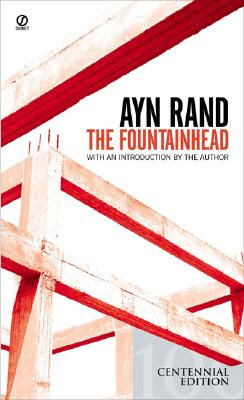
Ayn Rand's The Fountainhead. This is the book I've been burning to write a paper on ever since I read it.
And I was still reading a lot of the books mentioned earlier to my family.
The Second Move
Another 2 years later at the end of 1995, the Chinese family we were living with wanted to move and sell their house. So, a kind doctor just moving out, rented us his townhouse just down the street, where we would live for the next 10 years.
And things began to happen, one of which (because this is not so much the story of my life as it is the books in my life), besides having already begun going into the city to teach Bible classes every week, was Fridays at the Hakes'.
Steven Hake was an American lit professor whose classes I started auditing at the Jong Shan University by the beach. He homeschooled his six kids; the oldest was away at college in Scotland and the youngest couldn't walk yet.
Every Friday all homeschoolers within two hours' train ride of Kaohsiung came to his house to eat lunch, have fun, do something outdoors together, and rehearse a play Kevin Hake, the second oldest, had written. Kevin had passed around two plays that first day, one an Agatha Christie play, but I looked at his and said, "Hey, yours is funnier." So we rehearsed it every week and eventually put it on at the university. Alas, our videotape of the play was lost on the bus, and I don't even have a copy of the script. Kevin, if you see this can you e-mail me a copy, I'd like to link to it here.
Back at the house, they would read Where the Red Fern Grows aloud while everyone crotcheted (even the boys). I was usually kneeling by their wall of bookshelves, running my fingers over their books, too much in rapture to settle down.
Some of the books the Hakes let me borrow:
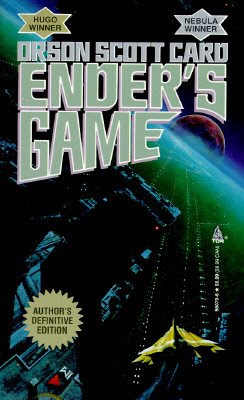
Ender's Game -- Intense classic. Shot to the top of my favorites. The Hakes were hesitant to lend it to me, though, because some people take issue with the precocity of its child heroes. Warning! Bad language! My copies have all the bad language marked out. If it bothers you to even mark it out, have someone else to mark it out for you. Though, frankly, the average Stephen King book has far worse language and themes.
I love the first three books in the first branch of the series: Ender's Game, Ender's Shadow, and Shadow of the Hegemon. After that, that particular branch got boring.
Plus, contrary to the famous axiom "Absolute power tends to corrupt absolutely" he develops this idea of hegemony not corrupting a person who's already weak in that area. Maybe he feels he has to believe that's possible, because he's a Mormon, a religion with a president and headquarters, whereas the New Testament pattern shows every congregation autonomous and no level higher than an plurality of elders in each local church.
Furthermore, his treatment of marriage and the ending to the fifth book reminded me of why "Tuck Everlasting" was so irritating. Future post on this.
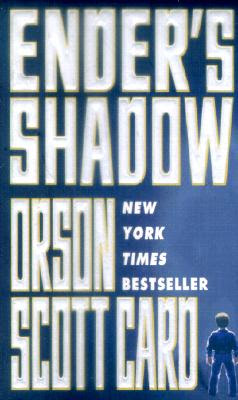
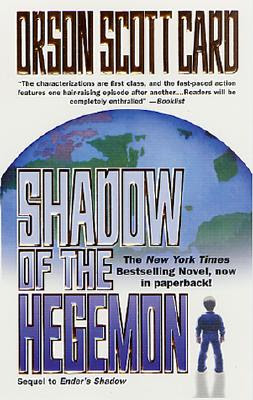
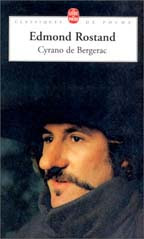
The Hakes also lent me Cyrano de Bergerac. Not counting Kevin's script, I had never read a play I found interesting before -- the Compleat Shakespeare I had read out of sheer boredom as a child had failed to enthrall me,
The Hakes also lent me The Zion Chronicles by Bodie and Brock Thoene.
The whole series was riveting but I especially remember it for the scene where Ruth's husband washes her hair for her in the kitchen sink. It was erotic without a single impropriety.
Not that anything would have been improper between a husband and a wife, but it blew me away how it could express it so much, so subtly. And no, it was NOT in the style of hypocritical "christian" romance fiction where they're draped all over each other, but not going all the way, of which I thankfully got little chance to read.




My favorite books and I around this time.
After the Hakes went back to the States and we had no more Fridays, I still went into town twice a week to teach Bible classes, and I managed to audit the Drama and Visual Arts class at the Zhong Shan University on the beach. It was there I saw "English Patient" (fortuitously missed the middle of the movie), "Mars Attacks" and "The Man of La Mancha" (Peter O'Toole, Sophia Loren), and read The Way of the Actor, by Brian Bates, in the university library.

I loved this book, not because I in any way wanted to be fake or manipulate people but because I love living into what I want to become.
It was a natural extension of "do what you know to be right even if you don't feel like it in the minute". It's the same principle behind "smile and you'll feel happy" and "fake it till you make it", which I felt was not fake but what we're all taught to do as a part of growing up. It's what we do every time we're shy but decide to speak up, every time we're concentrating on something but put it aside for somebody, every time we do something kind even if we didn't feel like it the second we started, every time we do anything which isn't pure impulse or reflex. If being sincere means only doing what I feel like, I would be a selfish lump on a log. But I can like a person and even if I'm not in the mood, I can say hi, and before I know it I'm in the mood. Action can guide feeling and still be sincere. Seeing it as figuring out what I truly want to be and acting into it is simply icing on the cake.

Other days, after teaching two or three Bible classes punctuated by interminable bus rides all over town, I would hunker down in a bookstore to read. The air conditioning was so cold, that even with the light jacket I'd brought, I would come out into the summer heat with blue nails, bloodshot eyes and a cramp in my arms from curling up into a ball trying to get warm while reading. (I loved winter because then it was nice and warm in the bookstores. )

I discovered Alexandra Stoddard because of the gorgeous cover of her book Daring to Be Yourself. And the contents were just as exciting, so I actually bought it.
Later I bought her book Creating a Beautiful Home for my mother's birthday:

Vein of Gold by Julia Cameron was another book inspirational enough to make me take the trouble of buying, instead of just reading it in the bookstore.

Her "morning pages" (writing 3 pages pell-mell of anything when you first wake up) taught me how to nip writer's block, just get the words out, and trust that beautifully written stuff will indeed appear. "Morning pages" are responsible for my having perhaps 20 extra diaries.
(I don't do "morning pages" anymore. In recent years, I felt the inevitable re-hashing was reinforcing trains of thought that needed to blow over. I'd rather just jot a paragraph of what was most memorable about any given day - easier to see at glance where my life went.)
Having said that, Julia Cameron is a Taos New Ager, but her book had enough gritty ideas for my structure of mind (as I generally don't care for woman-fluff "Isn't it so good to be here talking to you girls today" books).
The Thirty-Nine Steps by John Buchan, a book I bought on the library ship Doulos to savor again (don't remember when I first read it):

First visit back to the States after 8 years away.
In July 1998 (the very month I graduated from correspondence college and three years into our stay at the doctor's townhouse), my mom, baby sister, and I, went back to the U.S. for 4 months.
We surprised my mom's mom and dad at their 50th Wedding Anniversary (some day I'll link to this), and I got back in touch with my relatives, even staying with my great-aunts-and-uncles and second-cousins-once-removed.
Road memories:
Driving away from the Tampa airport at night on smooth silent soothing roads.
Driving all across Tennessee with my Great-Uncle Bob and Great-Aunt Nancy (Atnip) to stay with them for a month at their dream house in the country and the further we drove across Tennesee, the more it felt like a great healing washing over me.
Read the classic Clutter's Last Stand in Jacksonville, Florida at my Aunt Gay Atnip's:

My mom's cousin Elizabeth in Memphis, Tennessee, gave me Living a Beautiful Life when she found out I loved Alexandra Stoddard:

And I picked up Open Your Eyes, another Alexandra Stoddard, at a bookstore:

But the biggest thing that happened to me in the States was finding Joshua Harris's I Kissed Dating Goodbye (and on my next visit to the States 4 years later, Boy Meets Girl) ...

I was already aware of Joshua Harris having listened to his cassette duo, It's All About Attitude, back in Taiwan. I had brought it to the States with me and subjected some of my relatives to it on a car trip.
I'm not sure how much some of Joshua Harris's case stories veer off in the direction of Jonathan Lindvall extremism but I know in his Boy Meets Girl book he specifically states you can't let your parents make the decision for you.
The people who lent me their Jonathan Lindvall tapes were concerned that I listen to them with my parents because they did not agree with everything in his tapes ... unfortunately I'm the type that goes to extremes.
A guy friend of mine was concerned, but he didn't know how to express his concern with anything other than "You shouldn't be too good." Alas, if only he could have worded "too good" as "binding where God has not bound" which anybody can then see is as much a perversion as "loosing where God has not loosed".
It may seem good to deny yourself something because it's supposed to be the higher stronger road, right? (I didn't realize that Garth Wood's The Myth of Neurosis was still floating around in my brain.) But if it is something God has not commanded you to refrain from, then denying yourself just to be (pseudo) good, is a perversion every bit as much as "loosing where God has not loosed".
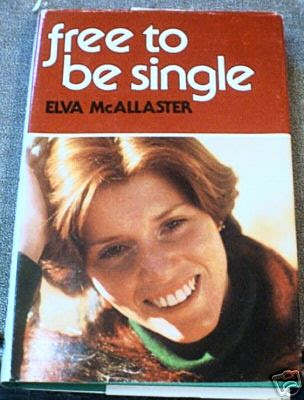
Also at a secondhand bookstore, I bought Elva McAllaster's Free to Be Single, not because I wanted to be single but it was one of those deftly written pithy old books on how to serve people with your life if you were single.
By the way, if you're driven crazy with wondering if you ought to be single, or if you want sex, you're not cut out to be single. Read Boundless Webzine and Nogreaterjoy.com before trying to be too pseudo-good. Both of those sites have scriptural problems which I will post on some day, but meanwhile I think they do a super job in the area of opening up eyes to not feeling guilty for wanting to get married or being too perfectionist in going about it.
Back in Taiwan after 4 months in the States, I found this during an extremely rare discovery of English books in a secondhand bookstore:
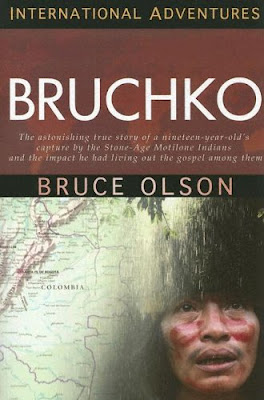
At some point in my life I ordered a whole bunch of books from Powells:
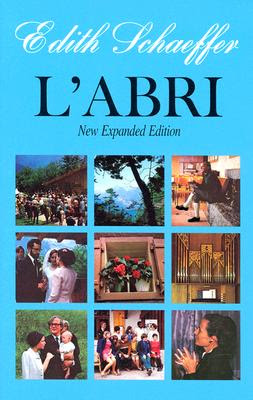
L'Abri by Edith Schaeffer.
True story about a famous American family in Switzerland, who in 1955 opened up their home to people dropping in from all over the world, and talked to them about God, and proof of his existence and creation.
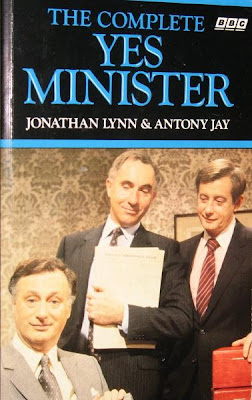
The Complete Yes Minister by Jonathan Lynn and Antony Jay, which I loved so much I read some of it to my Dad and sent it back to the States for one of my aunts to read.
"Its closely observed portrayal of what goes on in the corridors of power has given me hours of pure joy." - Margaret Thatcher

I still remember the night I read Princess Bride. I had gone to the Naval Academy's pitiful library one evening slightly sad, and the book was even better than the movie:

The wordless picture book Bored - Nothing to Do by Peter Spier is what made me search out the rest of his books like the one below, which is a great book to use in Bible classes:

While teaching Bible and English in town and reading in bookstores again, I was buying "penny classics" to read on the 45-min bus rides home, many of which were so good I reread them every year.
(Except for The Ambassadors by Henry James. I will never forget being horribly stuck for 40 minutes at a bus stop with it. I kept trying to read it, but no matter where I opened the book it was so unutterably boring, I finally decided the agony of pacing like a caged tiger was preferable to that perfidious prose. On the bus I tried to read it again and got carsick for the first time in years.)

I had already read different Jane Austen books through my life but after I bought them to bring home I started reading them over and over every year. When it comes to your favorite books, a year is barely enough time to forget the story enough to enjoy reading it again. At one point, I was even reading aloud to myself like I used to do when I was 10, to drag the story out and savor the sentence constructs and look for words I loved but seldom used.
Persuasion is probably my favorite story; Emma the only Jane Austen book I hated. I could not get into it, no matter how many times I try to read it. Maybe because it's the one book where I saw and loved the movie first (starring Gwyneth Paltrow). Or maybe it was the class snobbery ticking me off. Anyway, years after getting it, I finally got the bright idea of taking it to that place, you know, where you're so bored you'll read the back of shampoo bottles, and it finally clicked for me.
My favorite Jane Austen book covers ...





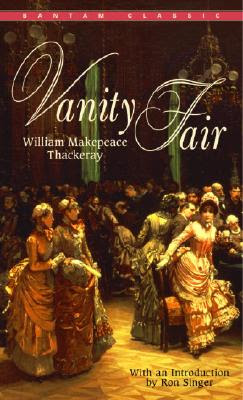
Thick with tiny print, Vanity Fair by Thackeray is Read-Every-Year Book #2; I would take it to a dessert island:
I've tried to read it to my mom, but what she considers "all description and no action" drives her crazy and I had to stop. Thackeray does wicked character portrayals though.

Read-Every-Year Book #3: Barchester Towers 当当网价格 by Anthony Trollope. He's like Thackeray in richness of people interactions but funny. Someday, sigh, I'll find the BBC movie of it! +/-
Other classics I re-read every two or three years:

The Baron's Apprenticeship by George Macdonald, edited by Michael R. Phillips.
It is the edited version I read almost every year; the sentences have been tightened and the paragraphs and chapters switched around. However you can read the original (originally titled There and Back) for free online. It was the originals (ok, mainly his fantasy novels) that so many people including C.S. Lewis and Tolkien loved him for.
I could not understand George Macdonald's jabs at organized religion until I realized he was reacting to the horror of Calvinism (God chooses some to be saved and not others). However, he went to the opposite extreme and believed that no one would go to hell, that God would eventually perfect all souls enough to be with him; and this also comes through in his stories. (Whereas, I see that as an equal lack of free will. In the one false doctrine you have no free choice to serve God, in the other false doctrine you have no free choice not to.)
I would probably be reading and re-reading a lot more of George Macdonald's books every year, except that I didn't have them (and still don't). To think, that I have come this far in my life with so many of his books still unread.

The Yearling by Marjorie Kinnan Rawlings. The cover makes it look like a kid's book, however it's anything but. The conversation is a minimalist's dream and the people of the Florida scrub country unforgettable.
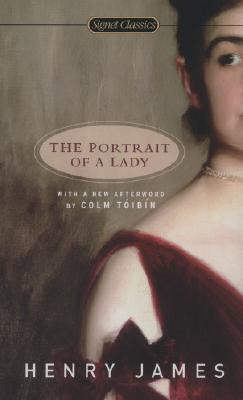
Portrait of a Lady by Henry James, until I killed a cockroach with the book and had to throw it out.

But if Portrait of a Lady encouraged me to distrust marriage, Anne Bronte's Tenant of Wildfell Hall, had the opposite effect on me, as most men are 10 times better than the perfidious husband in the book. Very good book for reluctant fiances, guys.
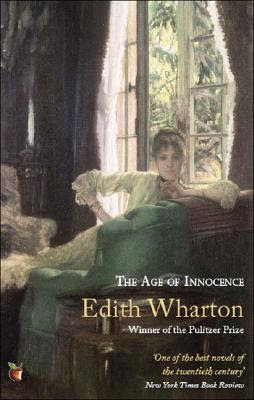
I hated the ending of Edith Wharton's The Age of Innocence.
No. 1, I felt Edith Wharton was just trying to copy Henry James' Portrait of a Lady with a cliffhanger that was not especially relevant to the story, like boom! where did that come from?
No. 2, An old boyfriend that would walk away from a lady (who had supposedly been waiting for him for many years) merely to continue cherishing a dream picture of the way she used to be in his head!? What a sap.
In the last paragraph he sees her window shade closed as he walks away, so I have to assume she was relieved to be spared his advances, because if not, if I was her I would have just showed up at his cafe table. "Hello. You're not interested in me anymore? I can deal with that. But you just don't want to spoil an old picture of me in your head? Pardon me, for showing up here and spoiling your dream world. What a wimp. Goodbye."
The movie was interesting because Michelle Pfeiffer was so innately poised; for months after watching it anytime I was the slightest bit awkward in company or didn't know how to be naturally woman, all I had to do was flash a memory of her.

Jerome K. Jerome's Three Men in a Boat [e-book] and [audio] and Three Men on the Bummel [e-book] are mostly true hilarious stories.
His description of German society in the last chapters of Bummel (written decades before the first and second world wars) gave me chills; you understand how their national personality at the time was making them susceptible to a future Hitler. (Click to pop down those paragraphs.)
In the placid, docile German of to-day, whose only ambition appears to be to pay his taxes, and do what he is told to do by those whom it has pleased Providence to place in authority over him, it is difficult, one must confess, to detect any trace of his wild ancestor, to whom individual liberty was as the breath of his nostrils; who appointed his magistrates to advise, but retained the right of execution for the tribe; who followed his chief, but would have scorned to obey him. In Germany to-day one hears a good deal concerning Socialism, but it is a Socialism that would only be despotism under another name. Individualism makes no appeal to the German voter. He is willing, nay, anxious, to be controlled and regulated in all things. He disputes, not government, but the form of it. The policeman is to him a religion, and, one feels, will always remain so. In England we regard our man in blue as a harmless necessity. By the average citizen he is employed chiefly as a signpost, though in busy quarters of the town he is considered useful for taking old ladies across the road. Beyond feeling thankful to him for these services, I doubt if we take much thought of him. In Germany, on the other hand, he is worshipped as a little god and loved as a guardian angel. To the German child he is a combination of Santa Clans and the Bogie Man. All good things come from him: Spielplätze to play in, furnished with swings and giant-strides, sand heaps to fight around, swimming baths, and fairs. All misbehaviour is punished by him. It is the hope of every well-meaning German boy and girl to please the police. To be smiled at by a policeman makes it conceited. A German child that has been patted on the head by a policeman is not fit to live with; its self-importance is unbearable.
The German citizen is a soldier, and the policeman is his officer. The policeman directs him where in the street to walk, and how fast to walk. At the end of each bridge stands a policeman to tell the German how to cross it. Were there no policeman there, he would probably sit down and wait till the river had passed by. At the railway station the policeman locks him up in the waiting-room, where he can do no harm to himself. When the proper time arrives, he fetches him out and hands him over to the guard of the train, who is only a policeman in another uniform. The guard tells him where to sit in the train, and when to get out, and sees that he does get out. In Germany you take no responsibility upon yourself whatever. Everything is done for you, and done well. You are not supposed to look after yourself; you are not blamed for being incapable of looking after yourself; it is the duty of the German policeman to look after you. That you may be a helpless idiot does not excuse him should anything happen to you. Wherever you are and whatever you are doing you are in his charge, and he takes care of you—good care of you; there is no denying this.
If you lose yourself, he finds you; and if you lose anything belonging to you, he recovers it for you. If you don’t know what you want, he tells you. If you want anything that is good for you to have, he gets it for you. Private lawyers are not needed in Germany. If you want to buy or sell a house or field, the State makes out the conveyance. If you have been swindled, the State takes up the case for you. The State marries you, insures you, will even gamble with you for a trifle.
“You get yourself born,” says the German Government to the German citizen, “we do the rest. Indoors and out of doors, in sickness and in health, in pleasure and in work, we will tell you what to do, and we will see to it that you do it. Don’t you worry yourself about anything.”
And the German doesn’t. Where there is no policeman to be found, he wanders about till he comes to a police notice posted on a wall. This he reads; then he goes and does what it says.
I remember in one German town—I forget which; it is immaterial; the incident could have happened in any—noticing an open gate leading to a garden in which a concert was being given. There was nothing to prevent anyone who chose from walking through that gate, and thus gaining admittance to the concert without paying. In fact, of the two gates quarter of a mile apart it was the more convenient. Yet of the crowds that passed, not one attempted to enter by that gate. They plodded steadily on under a blazing sun to the other gate, at which a man stood to collect the entrance money. I have seen German youngsters stand longingly by the margin of a lonely sheet of ice. They could have skated on that ice for hours, and nobody have been the wiser. The crowd and the police were at the other end, more than half a mile away, and round the corner. Nothing stopped their going on but the knowledge that they ought not. Things such as these make one pause to seriously wonder whether the Teuton be a member of the sinful human family or not. Is it not possible that these placid, gentle folk may in reality be angels, come down to earth for the sake of a glass of beer, which, as they must know, can only in Germany be obtained worth the drinking?
In Germany the country roads are lined with fruit trees. There is no voice to stay man or boy from picking and eating the fruit, except conscience. In England such a state of things would cause public indignation. Children would die of cholera by the hundred. The medical profession would be worked off its legs trying to cope with the natural results of over-indulgence in sour apples and unripe walnuts. Public opinion would demand that these fruit trees should be fenced about, and thus rendered harmless. Fruit growers, to save themselves the expense of walls and palings, would not be allowed in this manner to spread sickness and death throughout the community.
But in Germany a boy will walk for miles down a lonely road, hedged with fruit trees, to buy a pennyworth of pears in the village at the other end. To pass these unprotected fruit trees, drooping under their burden of ripe fruit, strikes the Anglo-Saxon mind as a wicked waste of opportunity, a flouting of the blessed gifts of Providence.
I do not know if it be so, but from what I have observed of the German character I should not be surprised to hear that when a man in Germany is condemned to death he is given a piece of rope, and told to go and hang himself. It would save the State much trouble and expense, and I can see that German criminal taking that piece of rope home with him, reading up carefully the police instructions, and proceeding to carry them out in his own back kitchen.
The Germans are a good people. On the whole, the best people perhaps in the world; an amiable, unselfish, kindly people. I am positive that the vast majority of them go to Heaven. Indeed, comparing them with the other Christian nations of the earth, one is forced to the conclusion that Heaven will be chiefly of German manufacture. But I cannot understand how they get there. That the soul of any single individual German has sufficient initiative to fly up by itself and knock at St. Peter’s door, I cannot believe. My own opinion is that they are taken there in small companies, and passed in under the charge of a dead policeman.
Carlyle said of the Prussians, and it is true of the whole German nation, that one of their chief virtues was their power of being drilled. Of the Germans you might say they are a people who will go anywhere, and do anything, they are told. Drill him for the work and send him out to Africa or Asia under charge of somebody in uniform, and he is bound to make an excellent colonist, facing difficulties as he would face the devil himself, if ordered. But it is not easy to conceive of him as a pioneer. Left to run himself, one feels he would soon fade away and die, not from any lack of intelligence, but from sheer want of presumption.
The German has so long been the soldier of Europe, that the military instinct has entered into his blood. The military virtues he possesses in abundance; but he also suffers from the drawbacks of the military training. It was told me of a German servant, lately released from the barracks, that he was instructed by his master to deliver a letter to a certain house, and to wait there for the answer. The hours passed by, and the man did not return. His master, anxious and surprised, followed. He found the man where he had been sent, the answer in his hand. He was waiting for further orders. The story sounds exaggerated, but personally I can credit it.
The curious thing is that the same man, who as an individual is as helpless as a child, becomes, the moment he puts on the uniform, an intelligent being, capable of responsibility and initiative. The German can rule others, and be ruled by others, but he cannot rule himself. The cure would appear to be to train every German for an officer, and then put him under himself. It is certain he would order himself about with discretion and judgment, and see to it that he himself obeyed himself with smartness and precision.
For the direction of German character into these channels, the schools, of course, are chiefly responsible. Their everlasting teaching is duty. It is a fine ideal for any people; but before buckling to it, one would wish to have a clear understanding as to what this “duty” is. The German idea of it would appear to be: “blind obedience to everything in buttons.” It is the antithesis of the Anglo-Saxon scheme; but as both the Anglo-Saxon and the Teuton are prospering, there must be good in both methods. Hitherto, the German has had the blessed fortune to be exceptionally well governed; if this continue, it will go well with him. When his troubles will begin will be when by any chance something goes wrong with the governing machine. But maybe his method has the advantage of producing a continuous supply of good governors; it would certainly seem so.
Jerome K. Jerome wrote this decades before World War 2.
The original three men (Jerome on the right):


On Writing 寫作 by Stephen King
The best most interesting books on how to write are written by bestselling authors themselves. Warning! Bad language! My copy has all the bad words marked out.
In April 2001, in the middle of all that book reading, I went to Scotland for a month, and spent weeks of happy hours over the years planning to go back which I haven't done yet.
Because in 2002, 4 years after the first U.S. visit, I went to go see my relatives again, and when I got back I revamped my life a bit.
First, going into town 2-3 times a week, not to mention a total 4 hours of bus-riding each time, was making me tired and sick and I decided to teach classes only from my home. I can teach from dawn to dusk, if you will just show up at my home.
Second, I decided to pretend for a moment that money was not an object. If I was a millionaire living off a fortune, what would I choose to do with my life (besides bike Scotland, marry and have 24 kids, that is)? I didn't want to look back on a whole bunch of wasted years if it wasn't what I had wanted to waste them on. Tutoring English to get money to go see my relatives in the U.S. was one thing, but otherwise a bit of money to buy clothes was all I needed.
I decided I wanted to get as many people as possible through the Bible, what they did with it afterward was their business. I had always taught Bible classes and tutored English one-on-one privately, and outwardly nothing much changed at first but the focus was different.
I kept the tutoring classes I already had, but I gave up feeling guilty for not looking for more, and I added a free half hour of Bible English to each of my English classes. It helps that I discovered a whole bunch of Bible cartoons and Bible films around this time.
Third, around 2005 a friend took me to a nearby daily community exercise class. I took a phonics book with me and started teaching the ladies after class, and inviting them back to my house once a week to see a Bible cartoon. Eventually we were reading through the life of Jesus at the community center every day.
The exercising was really nice because I seldom got sick again, and I am still meeting new people and starting new Bible studies through those classes.
But during those 3 years of exercising and teaching we moved for the third time in 2006.
It was another case of the landlady wanting to sell, so I had a lot of fun biking all over adjacent neighborhoods looking for a place. We ended up moving 10 min away across a bridge into country (!) (an undeveloped suburb again) into a much smaller house, but thank God, a house with a giant picture window streaming sunlight into our tiny kitchen/living room and I could see sunsets again, and almost weep with happiness at being able to hear crickets every single night of my life, and far enough away from the main road that there is blessed silence instead of the nonstop traffic I heard in my old bedroom for 10 years.
*Some of the books in this section are lacking favorite quotes to represent why I liked them. I hope to gradually add those quotes. But I felt it was more important to get my blog passable and open to the public before too many more years went by.
*This is one of those posts I treat more like an updatable webpage. If I find a way to write something better I will.
Related Posts:
beloved books (1 - 3 years old)
beloved books (4 - 7 years old)
beloved books (8 - 9 years old)
beloved books (10 - 12 years old)
beloved books (13 - 14 years old)
You are here: beloved books (15 - 30 years old)
books I want to read
Homeschooling, A Free Luxury Education



0 comments:
Post a Comment
No profanity, please, "... but only such a word as is good for edification according to the need of the moment, so that it will give grace to those who hear." (Eph 4:29)